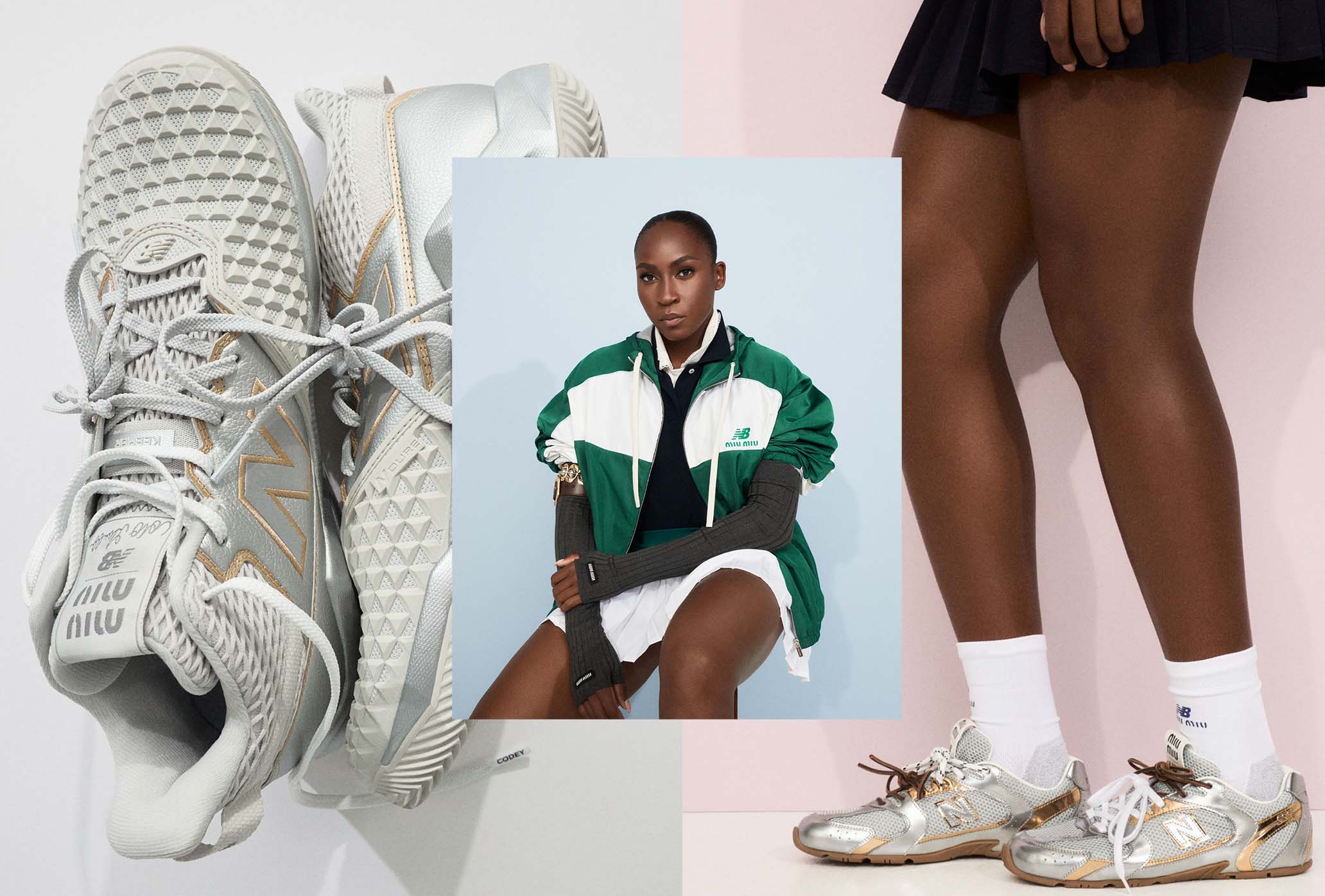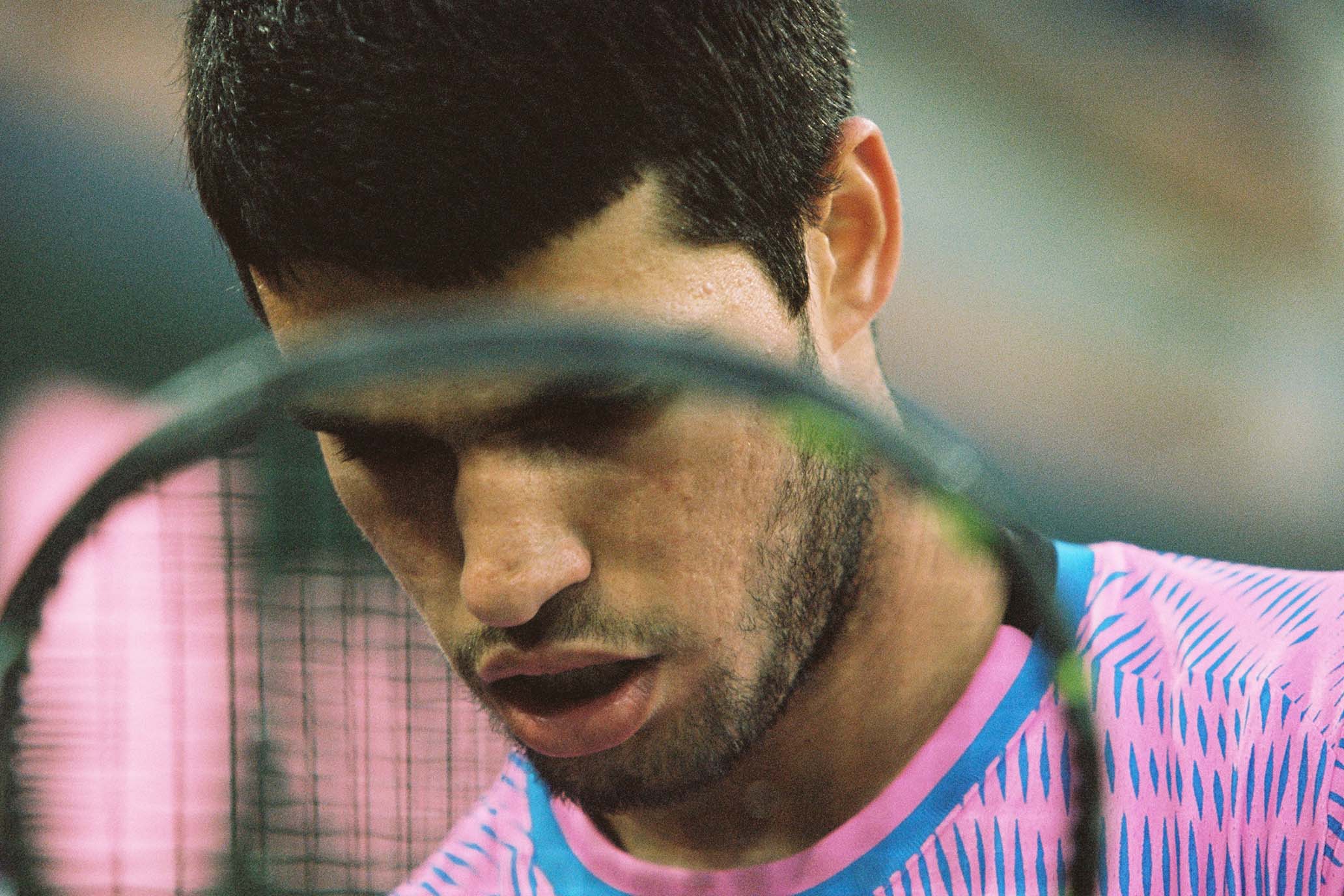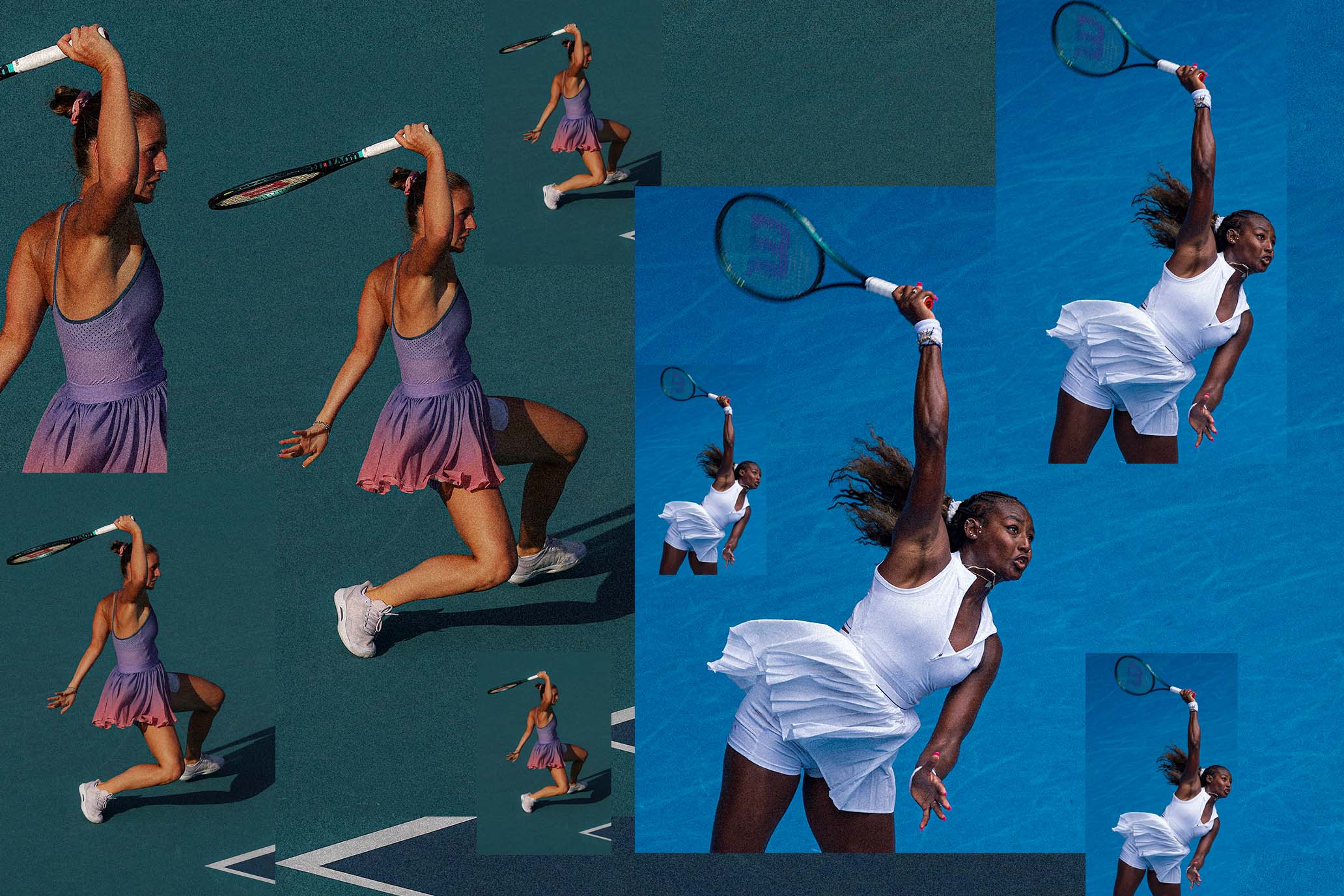The Wonder
The Wonder
Emma Raducanu is putting it together.
Emma Raducanu is putting it together.
By Ben RothenbergMarch 28, 2025
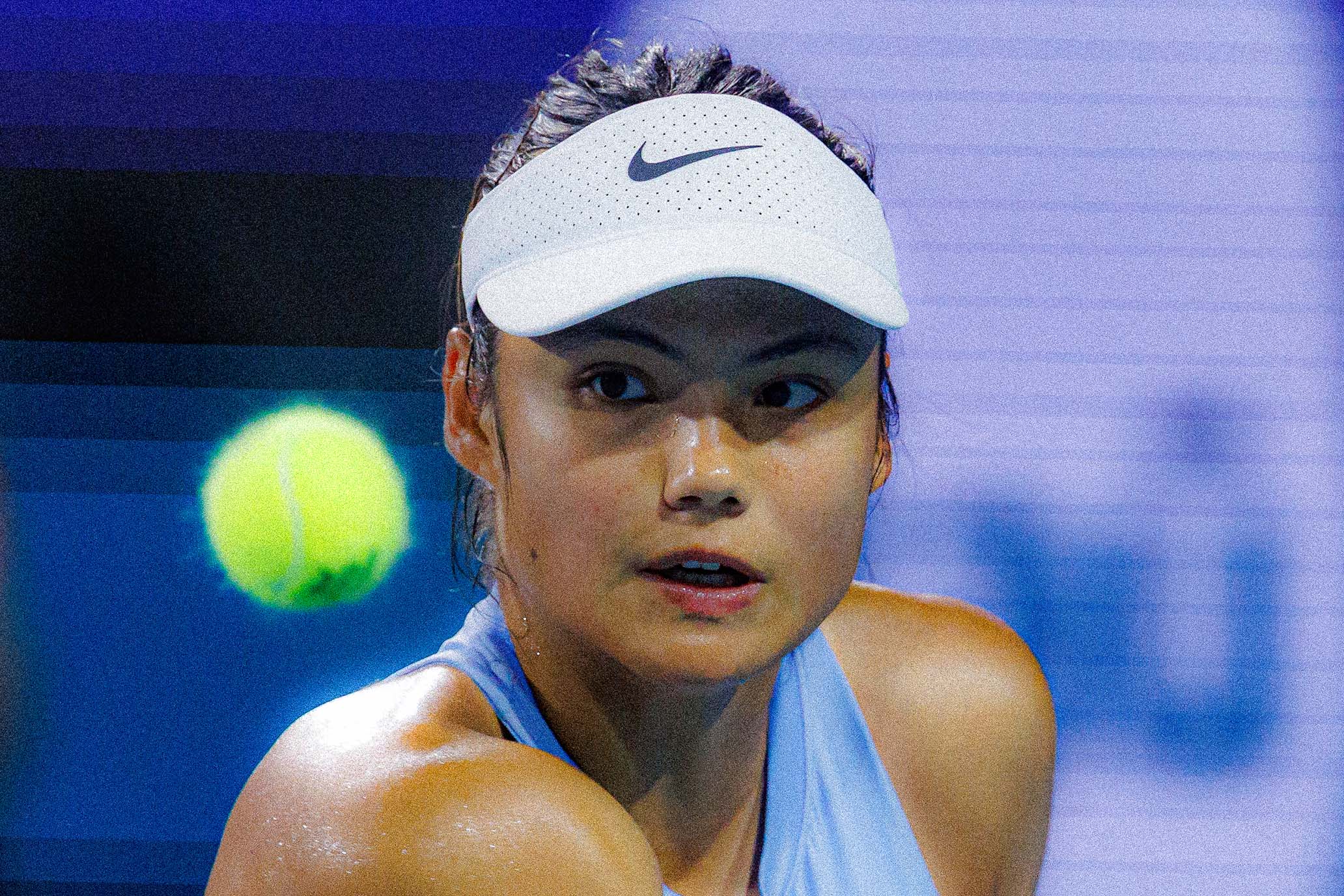
Eyes on the prize. // Getty
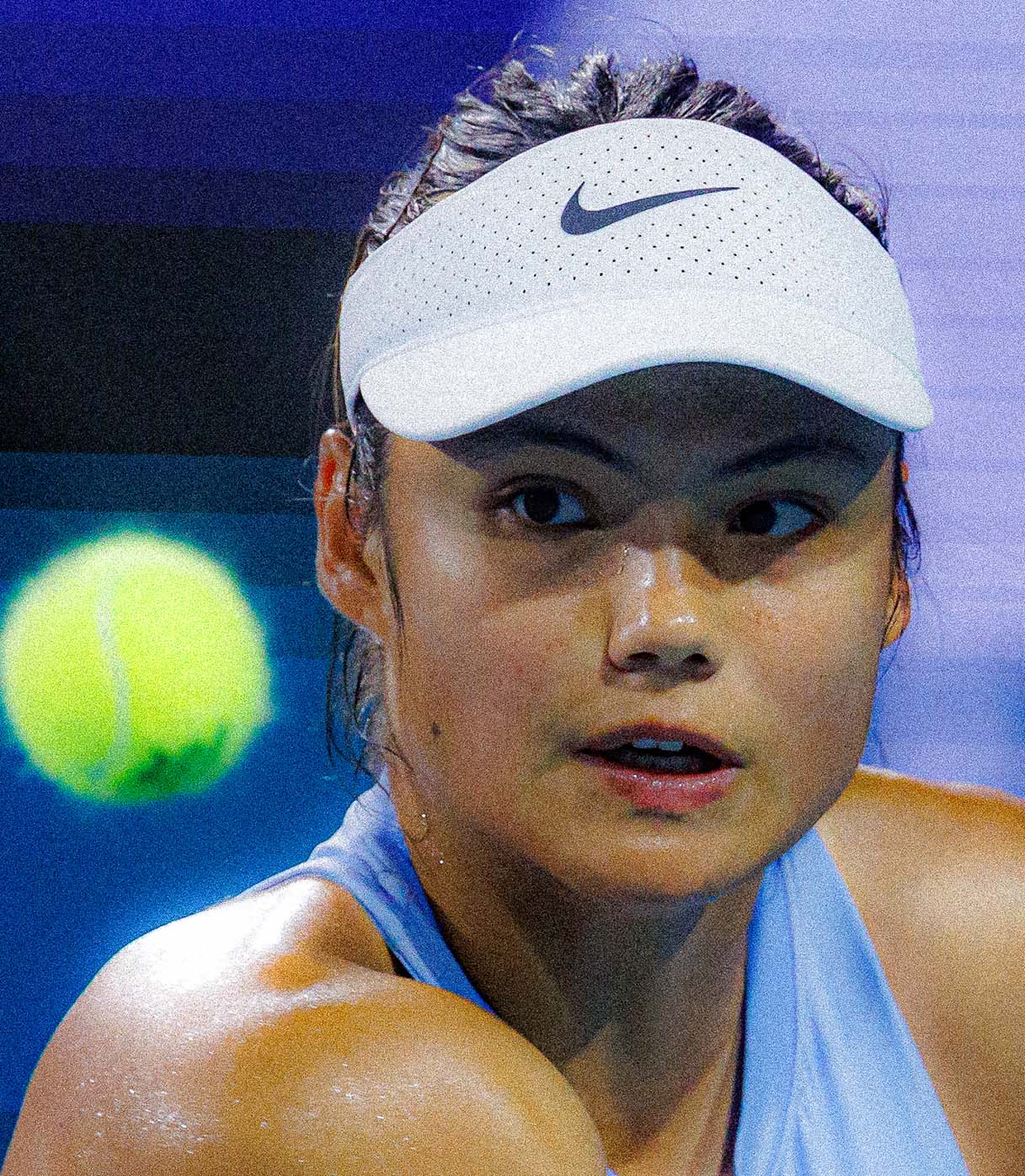
Eyes on the prize. // Getty
Three women notched their first career hard-court win over a top 10 opponent at this month’s Miami Open.
Ashlyn Krueger, a steadily rising 20-year-old Texan who recently reached the top 40, beat No. 8 Elena Rybakina; Alexandra Eala, a 19-year-old Filipina wild card ranked 140th who has been the breakout star of the event, knocked off both Australian Open champion No. 5 Madison Keys and No. 2 Iga Swiatek en route to the semifinals.
The third name is the most surprising inclusion on the list: Emma Raducanu, who eked out a win in a third-set tiebreak over No. 10 Emma Navarro—and whom most would have probably assumed would have checked that box years ago.
Little in Raducanu’s career has made logical sense, though. The milestone win over Navarro came nearly four years after Raducanu won a star-making title on the hard courts of the U.S. Open in the most improbable fashion—coming through the qualifying draw and then the main draw without dropping a single set.
It was a triumphant moment—with a sense of exultation multiplied by that 2021 U.S. Open being the first tournament played without significant pandemic precautions—and the 150th-ranked 18-year-old shot to superstar status in Britain and beyond.
Raducanu’s run proved that there aren’t strict prerequisites to being a tennis superstar. It wasn’t until a few weeks after her breakthrough in New York that she played a three-set match at tour level for the first time in a small tournament in Romania. Who wins a Grand Slam title before playing a third set?
These sorts of out-of-order moments have continued for her. When Raducanu beat Sloane Stephens in the first round of the next major, the 2022 Australian Open, it was her first time beating—or even facing—a fellow major champion.
In her post-match press conference that night, Stephens accurately pointed out how Raducanu’s reality had been so much more intense than her own because of the British multiplier on hype: “We [both] won the U.S. Open, but our situations are very different; I think she is carrying a whole country.”
The scale of attention was indeed nothing like Stephens—nor any other recent champion—had received. Perhaps most surreally, Raducanu’s name was postmarked onto all mail sent in the United Kingdom for a period after her win.
Stephens said that Raducanu’s trajectory had been “very backwards” and that she would have “a lot to learn.”
“I mean, she hasn’t been through much of anything yet, so there will definitely be some ups and downs and some crazy experiences that happen throughout her years,” Stephens said. “I think this is only the beginning…. I was talking to someone in the locker room and I’m like, ‘We’ll be here when she comes down.’ Not [just] Emma, but in general, it’s all a cycle. I think learning how to deal with it early on is the best way to handle it.”
But Raducanu didn’t seem to learn how to deal with it early on, and so her breakthrough moment didn’t create momentum. Some of the setbacks were clear unforced errors by herself and her management: Most clearly, after they had won the U.S. Open together, Raducanu chose not to retain her coach Andrew Richardson, the first churn in what would become a constant carousel of coaching changes.
But other hardships weren’t self-inflicted. Within months of the U.S. Open, Raducanu had attracted her first stalker—tragically a perennial peril in women’s tennis—a 35-year-old man who had come to her house multiple times in late 2021, once stealing a sneaker off her porch as a souvenir and another time decorating a tree outside the family’s home.
That aberrant behavior was an extreme example of a general obsession over Raducanu that had taken hold in Britain—particularly in their tennis media, which breathlessly documented her every move, even if no one was ever actually asking for that. One of the least popular articles I ever wrote was a freelance piece I picked up for The Telegraph at the 2022 Italian Open; their normal correspondent wasn’t going to be there for Raducanu’s pretournament media conference, their frantic editor explained to me over the phone, but they couldn’t possibly afford to miss covering the occasion. Naomi Osaka, whom I was shadowing that season for the biography of her I was writing, had withdrawn from the tournament, so I accepted the assignment. Raducanu said nothing interesting whatsoever in her press conference—which was down to the unremarkableness of the occasion more than herself. But because it was about Raducanu, The Telegraph promoted the article prominently. Readers in the comment section did not hide their exasperation at the oversaturation of Raducanu coverage at the detriment of broader tennis coverage in the paper, with several complaining that they’d much rather be reading about the recent star turn of Carlos Alcaraz.
The British press was covering every granule of what was ultimately an unspectacular sophomore season for Raducanu. There were a couple highlights—she managed to bagel Serena Williams and Victoria Azarenka in back-to-back matches in Cincinnati—but Raducanu didn’t make it past the second round at any of that year’s majors. Her loss in the first round of her U.S. Open title defense knocked her well back outside of the top 50.
Raducanu spent the next few years unable to stay injury-free and unable to keep a steady coach. Raducanu, whose sponsor portfolio has remained lucrative despite her mediocre results, often inspires eye rolls in tennis circles, particularly for traits such as her refusal to ever deign to play a qualifying draw no matter how her ranking had plummeted, only competing in events that will give her a wild card into the main draw. But she also sometimes inspires sympathy, such as when a new stalker began following her at tournaments ranging from Singapore to the Middle East earlier this year, triggering Raducanu due to her past brushes with fixated fans.
After hiring the strength coach Yutaka Nakamura for this season—who had previously worked with Maria Sharapova and Naomi Osaka—the 22-year-old Raducanu is finally starting to look sturdier. During her quarterfinal loss to fourth-ranked Jessica Pegula in Miami, Lindsay Davenport earnestly praised Raducanu’s improved fitness on Tennis Channel, saying that it was “a fantastic sign that her body can hold up” through five matches. It was the first time Raducanu had played that many singles matches at one tournament since the 2021 U.S. Open, after all, and it was enough to put her back into the top 50 for the first time since the ranking points from that win had expired.
Jim Courier, Davenport’s co-commentator, agreed and said that Raducanu was proving she wasn’t as weak as believed. “There probably is a little bit of a thought that she might not be the toughest out there on the court,” Courier said. “She’s showing some toughness out here tonight. That, I think, is important as well.”
“To get the locker room, the street cred?” Davenport asked.
“Also for herself, in order to build up her own belief that she can overcome these physical obstacles that all players will face,” Courier replied. “Some players are just built to withstand them at a higher level than others; that’s part of the human condition. We’re not all alike.”
When everything is going right for her, Raducanu is unlike the others in a good way: She can seem to have the ball on a string like few others in tennis, with pinpoint precision that can pop easy winners past any opponent. But that upside proves double-edged and contributes to her perfectionism—and a propensity to panic when things aren’t going her way.
Raducanu’s most recent spin of the coaching carousel was a quick one, lasting just a couple weeks with the no-nonsense veteran coach Vlado Platenik. By some counts, he was Raducanu’s eighth different coach since her U.S. Open win.
When I spoke to Platenik this week, he said he saw significant progress from Raducanu in their limited time together earlier this month. “I really didn’t before have a player improve that much in such a short time,” he said. “She’s definitely smart and talented, but I also understand the pressure from outside that she’s getting.”
Platenik said that he appreciated the unique attention Raducanu receives after his phone began buzzing with British reporters once they started working together. But he said he was also struck by how deeply Raducanu feels every up and down along her closely watched ride. That sensitivity, Platenik believes, is because of how earnestly Raducanu wants to prove—to herself and to the world—that she can be more than the sport’s ultimate one-hit wonder.
“I honestly thought that after a few years of being in this circus, she will be a little bit more resilient to this pressure,” Platenik said of Raducanu. “But I was wrong, because she really takes it very, very serious. I think she reallllly wants it. She’s not just saying that she wants to win; she wants to do it.”


The Hopper
—CLAY Tennis on Beatriz Haddad Maia’s US Open run.
—Giri on Iga Swiatek’s loss to Jess Pegula.
—Jon Wertheim’s mailbag is full this week.
—Sara Errani and Andrea Vavasori have won the US Open mixed doubles.
—Tim Newcomb on Taylor Fritz and Asics.

